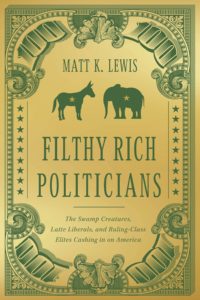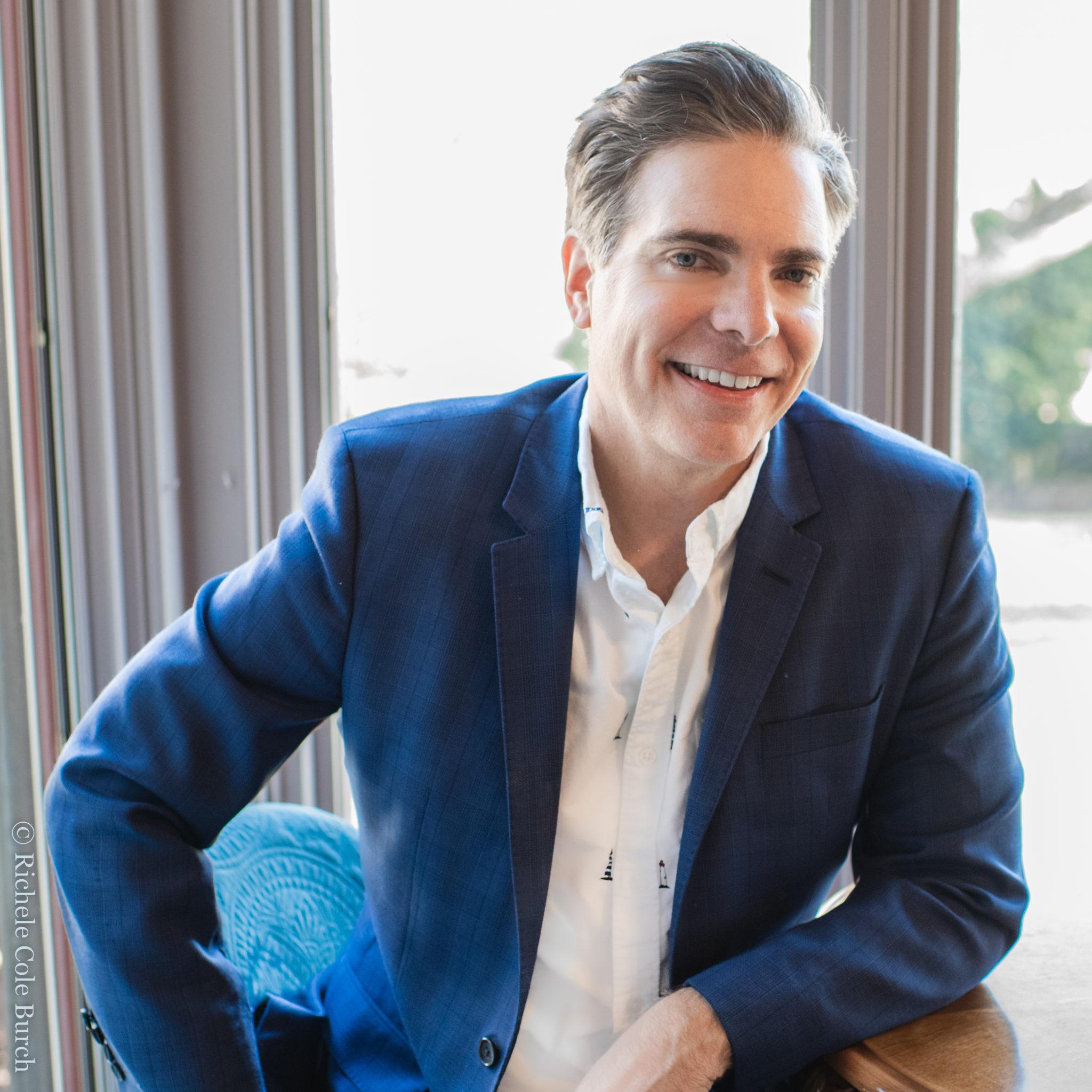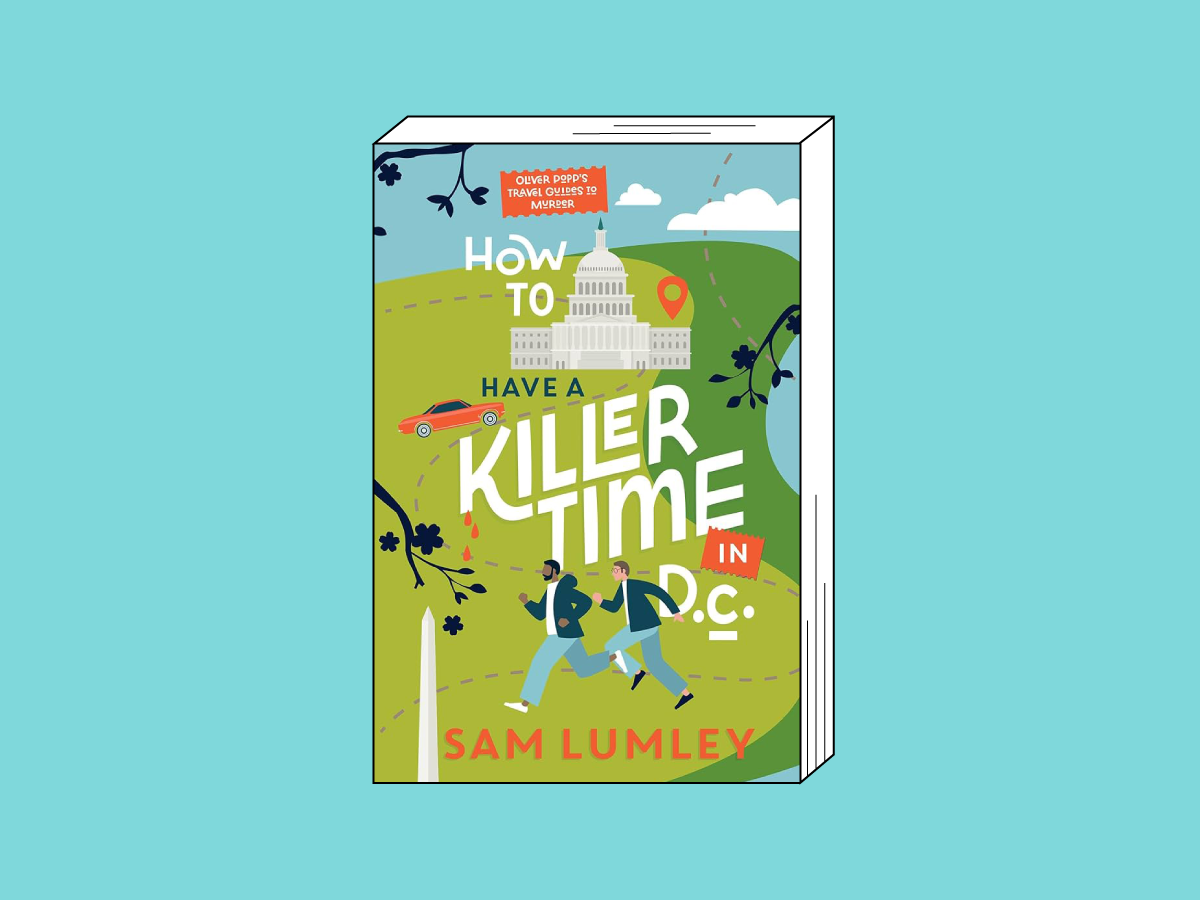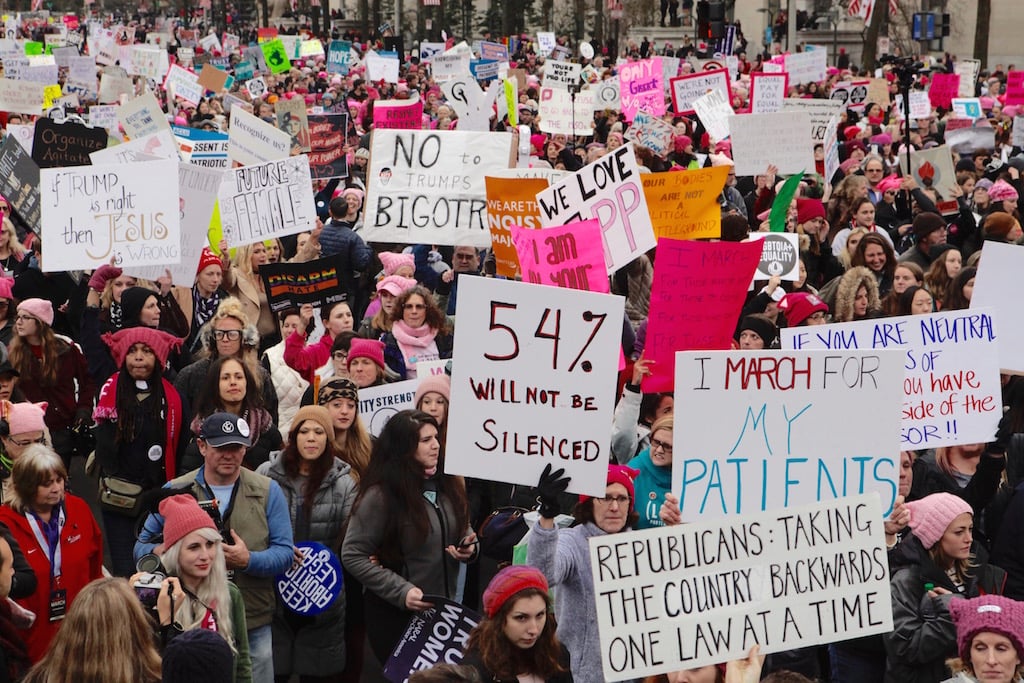Matt Lewis’s new book sets out to answer a simple question: “Why it is,” as he explains to Washingtonian, “that the rich get elected and the elected get rich.” Filthy Rich Politicians: The Swamp Creatures, Latte Liberals, and Ruling-Class Elites Cashing In on America, which hits shelves Tuesday, looks at both dynamics, from the surprising number of members of Congress whose net worth requires two commas to relay to the sweetheart deals and loose rules that allow politicians to trade stocks, hire family members, and move easily between public service and the influence industry. “Right now, your average member of the House is something like 12 times richer than the average American household,” he says. “And that, I believe, is contributing to the sense that the game is rigged.”
Lewis, a Daily Beast columnist and frequent TV talking head who describes his own politics as center-right, isn’t a fan of populism—his last book was called Too Dumb to Fail: How the GOP Went from the Party of Reagan to the Party of Trump—but he believes this concentration of wealth in politics contributes to populism’s appeal: It makes people feel like suckers, he says, and the next step is “They lose faith in norms, customs, and institutions, and they are tempted to turn to more radical and corrupt forms of government.”
Like what I presume to be a fair percentage of people around what my former boss used to call “big-W Washington,” I’m friends with Lewis and his wife, who works as a fund-raiser for GOP candidates, even though we don’t, as a rule, agree on politics. And yet I found myself nodding my head at large portions of Filthy Rich Politicians, which features blurbs on the back from Tucker Carlson (Lewis’s old boss at the Daily Caller) and Glenn Greenwald. I also identified very strongly with the story he tells in the book of trying to make a living here despite lacking access to the networks that private education tends to have imparted to your peers. We spoke about his new book over the phone.
Washingtonian: Early in your book, you report on examples of the fabulous luck some members of Congress have had in the stock market.
Matt Lewis: I guess the first thing to note is that this is a bipartisan problem. I’ll give you two examples. [Former House Speaker Nancy Pelosi’s husband] Paul Pelosi invested hundreds of thousands of dollars in call options on Tesla stock. Just five weeks later, Joe Biden signed an executive order directing federal officials to transition federal, state, and local fleets to zero emissions vehicles by 2027. So that, I think looks very suspicious—at the very least, we could say it seems swampy.
 The Republican example is [US Senator] Richard Burr. He was the chair of the Intel Committee. And when Covid-19 came down the pike, during a time when the average American didn’t realize how bad Covid would be, he unloaded hundreds of thousands of dollars worth of stock shares on things like Wyndham Hotels, the kinds of things that might not fare well during the global pandemic.
The Republican example is [US Senator] Richard Burr. He was the chair of the Intel Committee. And when Covid-19 came down the pike, during a time when the average American didn’t realize how bad Covid would be, he unloaded hundreds of thousands of dollars worth of stock shares on things like Wyndham Hotels, the kinds of things that might not fare well during the global pandemic.
You know, insider trading in Congress has been illegal since 2012. But it’s impossible or difficult to prove. Nobody’s telling you you have to go to Congress. And certainly no one’s telling you that you have to stay there for decades and decades. But while you’re there, I don’t think it’s asking too much to to give up betting on the stock market.
It’s also quite good to be related to someone in Congress, as the story of Joe Manchin’s daughter and the price of EpiPens shows.
One of the themes of the book is that it’s not just that the American public has this sense that members of Congress and elected officials are using their perches to feather their own nests, but it’s that they’re using their perches to spread the wealth around to their families. You mentioned Joe Manchin and his daughter with the EpiPens, which I think is is not certainly not good. Other things I talk about in the book are that in 2012, [US Senator] Ron Paul paid at least six different members of his family a total of more than $300,000 from his campaign. [US Representative] Ilhan Omar has directed millions of dollars to her husband’s consulting firm, and [US Representative] Maxine Waters in 2020 alone paid her daughter more than $80,000 out of campaign coffers.
You touch on an interesting point in this book, which is that even if you’re not born rich, once you get into politics, you’re likely to know a lot of rich people. And that lifestyle can seem awfully attractive. Does that contribute to this—I don’t want to say depravity, but, um, moral fluidity when it comes to money?
The cautionary tale I write about is former Virginia Governor Bob McDonnell and his political downfall. The scandal that that ultimately ended his political career was at least partly due to the fact that, you know, he and his wife, by virtue of the fact that they had to be involved in politics and raising money, raising large amounts of money, were constantly around people who are a lot richer than them.
I think that what happens is that at a certain point, there’s maybe a little envy and even maybe a sense of entitlement, like, “Well, I’m just as smart as these people. How come? How come they have private jet? How come I don’t have a private jet? I mean, I’m the governor.?” So I do think that that is a seductive temptation.
One response to that temptation is to “transition,” as Politico Playbook often calls it, to the lobbying world.
Somewhere between a quarter to a third of the members of Congress go into lobbying. But there’s other options, right? You can start a foundation and keep raking in the money and enjoying that lifestyle. Or you could do it on the millions of dollars that you’ve raised for your campaign. You could continue to give that money away slowly to political allies, who will probably be very grateful and will probably wine and dine you in the process.
US Senator J.D. Vance recently bought a house in my extremely blue neighborhood in Alexandria. I’m surprised, given his antipathy toward “elites,” that he didn’t decide to become your neighbor in West Virginia instead.
It is the ironic thing, right? [US Senator] Ted Cruz has an Ivy League pedigree and reportedly refused to study with anyone who went to “minor Ivies.” And yet he’s somehow a man of the people. Politicians on both sides of the aisle position themselves as being champions of the working man and woman. And then cast other people who really do have more working class backgrounds as elite.
Right, and if you have a background like those guys, you’re probably going to be a lot more comfortable in Del Ray rather than, I don’t know, Manassas.
As someone who lives in West Virginia now but spent 15-plus years in Northern Virginia, I always hated the people who would criticize quote-unquote “Washington.” I know and you know that when someone talks about Washington being a swamp, the context probably is the politics and not the city itself. But I just have to tell you, man, it’s a gorgeous city. People go on vacation here. They come here because it’s beautiful. My big gripe with DC is we need a John Adams memorial.
Sure, why not? So let’s talk solutions. You offer some in the book! You propose a ban on stock trading, want to forbid funneling money to family members, and you’ve changed your mind so you’re now pro-term limits. What else?
One of them involves book deals. I think people hear about book deals, and they kind of think it’s a nothingburger. But these deals can be very lucrative. Ron DeSantis became a millionaire because of a book deal. While I don’t begrudge anyone a book deal, I do think it becomes problematic when you have politicians and particularly members of Congress [who get them]. The reason that they’re making all this money is because they’re selling books via bulk sales. Oftentimes, it could be a political committee that buys tens of thousands of copies of someone’s book, therefore helping it go to the New York Times bestseller list.
You’ve got a right to write a book; I just don’t think you should profit on it. Right now, members of Congress cannot get paid to give a speech. I think the same rule should apply to writing books. I don’t think it’s asking too much while you’re serving the public that you don’t use your perch to cash in via books. In 1991 they banned the practice of getting paid for speeches because politicians were using it as a way that friends and supporters and donors could essentially funnel money into their pockets. I see no reason why books should not be treated the same.
Keep going!
I actually want to pay [members of Congress] more to compensate for for the things I’m taking away. I want to end double-dipping on pensions. I want a ten-year moratorium on on lobbying, the revolving door from Congress. But do I think any of it will fix it? This is where me being a Christian and a conservative helps answer the question. And I must confess, and a lot of people would question whether I’m actually a conservative. But I bring it up because of my work, because it speaks to my worldview: I believe that we live in a fallen world. I do not believe in the perfectibility of man. I do not believe that any of my reforms can quote unquote, fix the problem, because politicians are humans. You know, we’ve already outlawed murder, and yet it persists. I do not think that any reform in and of itself will solve the problem. But I do think that these reforms I call for will go a great deal toward mitigating problems, and creating a structure, a culture that incentivizes good behavior, and disincentivizes bad behavior, and leads us into temptation less. The goal is to make things a little better, because this country is worth fighting for.
Let me give you a chance to prove your bona fides as a as a conservative, because when I was reading this, I thought, what if we tax wealth the same way that we tax wages? Why don’t we make fewer rich people?
Right now people who earn their money via investments rather than labor are generally taxed at a lower rate. And because most members of Congress earn most of their money by virtue of investments rather than their salaries, generally speaking, they’re taxed at a lower rate than the people who pay their salaries. I don’t think that’s fair. I’m not saying we should raise everyone’s taxes—I’d be okay if we lowered them. In fact, I think the capital gains tax should be the same as that income tax.
I’m going to get out of this interview now since we agree on that. But I have to ask, since we talk a lot about our kids when we meet up: What would you do if your children wanted to go into politics, either commentary or fund-raising?
Well, no, to be honest with you. I would hope that they do something other than politics. But by the same token, I hope that they’re involved in some way. This is a great country. We have it very good. We have to conserve this great experiment. And part of that is reforming it and keeping it stable.
This interview has been edited and condensed.




















